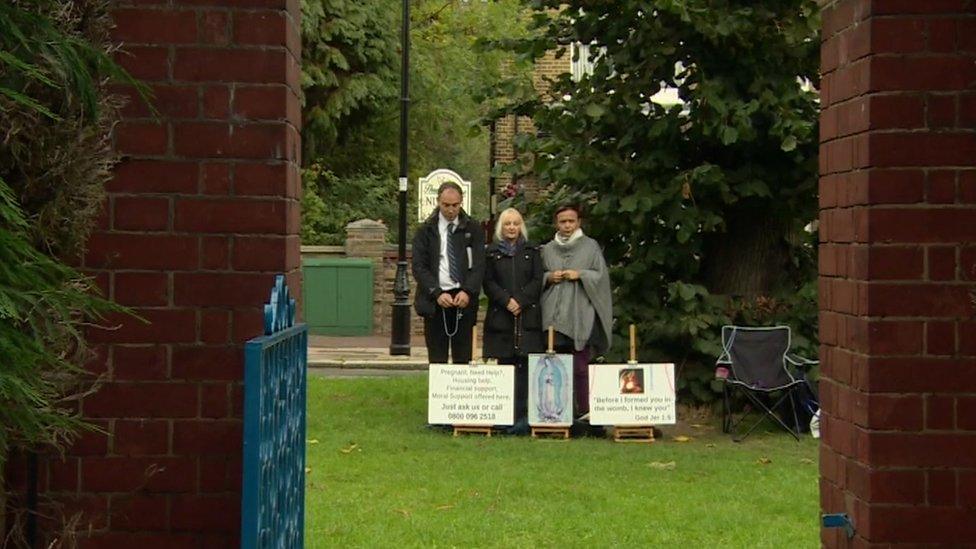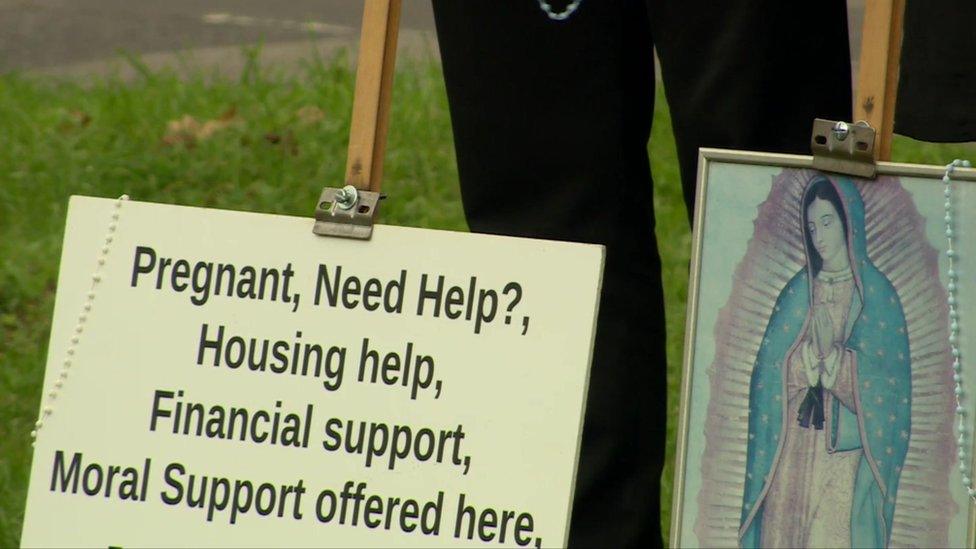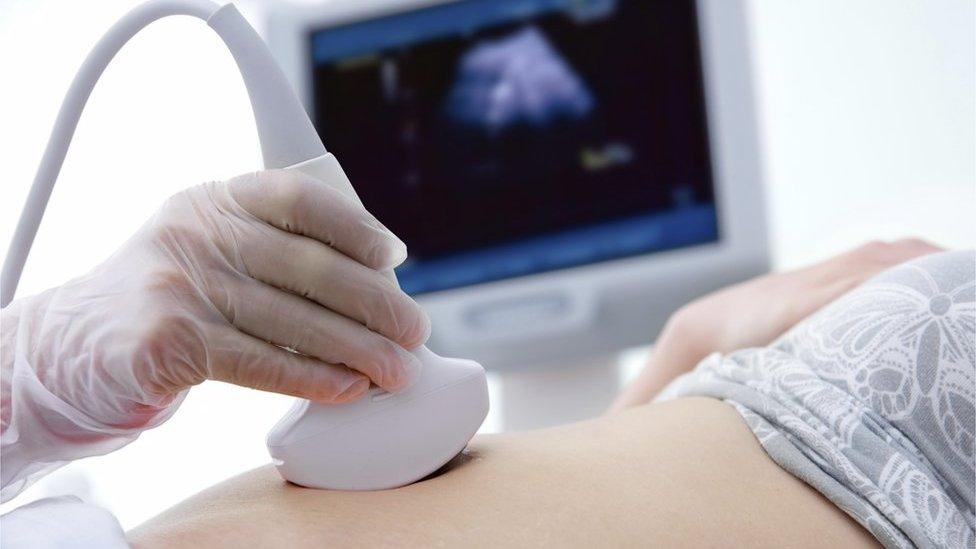Ealing Council paves way to ban anti-abortion protesters
- Published
Louisa says she was harassed outside a clinic
A council has moved to ban anti-abortion protesters from outside a Marie Stopes clinic in west London.
Campaigners have been accused of "harassing" and "intimidating" women outside the Mattock Lane clinic.
Ealing councillors backed the ban in October and now the council's cabinet has voted as part of the next stage in getting the ban enforced.
The Good Counsel Network, which holds daily vigils outside the centre in Mattock Lane, denies harassing women.
Some 3,593 residents have already signed a petition calling for a ban and now an eight-week public consultation will be held from 29 January based on a draft public spaces protection order (PSPO).
This is likely to prohibit people on Mattock Lane from approaching or monitoring women accessing the clinic, congregating in large groups, displaying distressing images and using amplification equipment.
Once the consultation has concluded - on 26 March - the council will decide whether or not to implement the PSPO.

The Good Counsel Network said it has held its vigil for 23 years "without any criminal charges"
More than 300 people wrote to the authority describing the pro-life protesters as "intimidating and harassing".
Those against abortion have said women are not being offered enough alternatives.
Council leader Julian Bell said: "Ealing Council is committed to ending the intimidation and harassment faced by those seeking legally available medical support.
"Since Ealing first raised this issue, it has become clear that behaviour of this kind is happening at clinics across the country.
"We need ministers to come forward with a national solution to this problem, giving councils and police appropriate powers to prevent intimidation and distress."

Protestors said women were not being offered alternatives to abortion
In a report, external presented to cabinet, officers concluded that following unsuccessful attempts to negotiate an informal agreement for a "voluntary safe zone" near the clinic entrance, a PSPO was potentially the most appropriate measure.
The report also states the "continued deployment of policing resources" outside the clinic was an "unusual and unnecessary use of local policing resources that could be deployed elsewhere".
- Published7 November 2017

- Published11 October 2017

- Published9 October 2017
